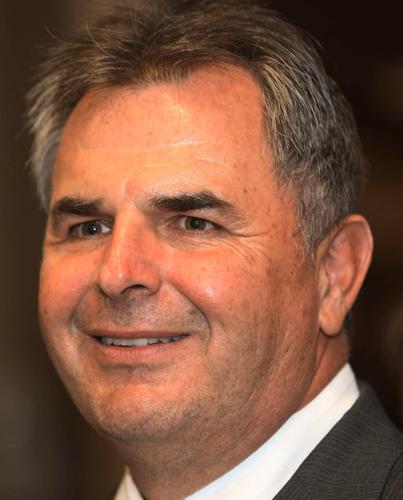In September 2000, Pima County sheriff’s deputies shot and fatally wounded Joseph Mucenski Jr. during a confrontation at his apartment.
Mucenski, 36, suffered from depression and refused to drop a knife. The deputies, fearing for their safety, had no choice but to use deadly force.
The combination of Mucenski’s mental-health problems and the somewhat limited training offered to law enforcement officers interacting with the mentally ill resulted in tragedy. It was the second of five such incidents in the Tucson area in under 10 months.
In the wake of that tragedy, law enforcement and the community realized they needed to form a deeper partnership to develop ways to de-escalate potentially dangerous situations and deflect individuals with mental illness from jail. Mucenski’s father, a retired New York City police officer, became a catalyst for change, working with the sheriff and Tucson police to offer crisis-intervention training in an effort to avert similar tragedies.
After the shooting on Jan. 8, 2011, when a gunman killed six and wounded Rep. Gabrielle Giffords and 12 others, the Sheriff’s Department created the Mental Health Support Team (MHST). The Tucson police followed suit. Both units are called upon to de-escalate crisis situations involving mental illness.
In 2006, Pima County voters overwhelmingly approved $66 million in bond funding for construction of the Crisis Response Center and Behavioral Health Pavilion, both opening in August 2011. The Crisis Response Center is a psychiatric emergency room providing short-term crisis stabilization and referral to services in the community. The Behavioral Health Pavilion is a psychiatric hospital for those requiring longer hospitalization to reach stability.
As the behavioral health administrator and the sheriff of Pima County, we are proud of the progress our community has made in addressing the needs of those with mental illness, and we are joined in new efforts to reduce the number of such individuals in our local jail. From every perspective — criminal justice, health care and wise use of tax dollars — it makes sense to divert people with such problems to treatment instead of jail. Incarcerating someone with a mental illness or substance-abuse problem often makes problems worse, leading to an endless cycle of crime and incarceration.
To be clear, this is not going “soft on crime.” People who have been released for treatment post-arrest still face charges. Accountability remains a priority. But by offering treatment to low-level offenders, we can connect them to resources that may help resolve the underlying problems that led to criminal activity in the first place, ultimately reducing crime and saving the high costs of incarceration.
In conjunction with the MacArthur Foundation’s national Safety and Justice Challenge, we continue to build on our past successes in addressing behavioral-health issues. Pima County Pretrial Services soon will begin screening arrestees before their initial court appearance for mental-health and substance-abuse problems. It will provide the court with information about treatment alternatives for individuals released from jail while awaiting trial. Most of these defendants are eligible for treatment funded by Medicaid, and some have private insurance. PTS will supervise pretrial defendants to help ensure they appear in court. We hope to offer defendants an opportunity to live healthy, productive lives and stay out of the criminal justice system.
This is not a one-size-fits-all solution. Only those who meet rigorous screening requirements and have documented behavioral-health problems are targeted for diversion options. Those who are charged with dangerous offenses or who may be a danger to the public would not be diverted from incarceration.
We have been jailing people with mental illness and addiction for decades, and it doesn’t work. The Sheriff’s Department and Pima County Behavioral Health will continue to work together and with other justice-system partners to develop additional evidenced-based alternatives that will give individuals with behavioral-health issues a route out of the justice system and into recovery.







